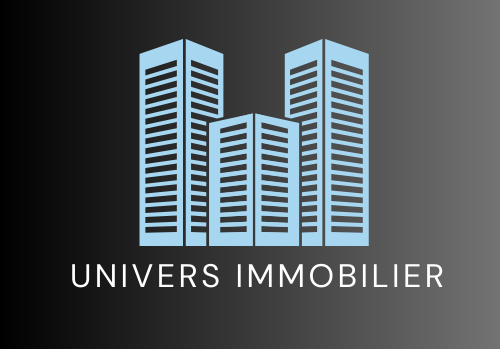As a landlord, one of the most important decisions you’ll make is whether to rent out your property as a furnished or an unfurnished apartment. There are various factors to consider when making this decision, such as tenant preferences, potential returns, and the time it may take to find a suitable renter. In this guide, we will discuss the benefits of renting out furnished vs. unfurnished apartments and help you determine which option is best for you and your rental property.
- 1 Furnished apartments: higher rental rates and shorter lease terms
- 2 Unfurnished apartments: lower maintenance and longer tenancies
- 3 Weighing the pros and cons: tenant preferences and market demand
- 4 Comparing costs and returns: initial investments and potential profits
-
5
FAQ
- 5.1 1. What are the benefits of renting out a furnished apartment?
- 5.2 2. What are the benefits of renting out an unfurnished apartment?
- 5.3 3. How do I decide whether to rent out my apartment furnished or unfurnished?
- 5.4 4. Can I change my mind after I’ve already rented out my apartment?
- 5.5 5. Do I need to get insurance for my furnished rental property?
Furnished apartments: higher rental rates and shorter lease terms
Renting out a furnished apartment can be more appealing to certain tenants and potentially result in higher rental rates. This is because furnished apartments provide convenience and ease for tenants who do not own furniture or are relocating from a different city or country. In turn, landlords offering furnished units can charge a premium for the added value of a move-in ready home.
Moreover, furnished apartments often cater to short-term renters and can be ideal for those seeking temporary accommodations, such as business travelers, students, or people on work assignments. As a landlord, this means you can offer flexible lease terms, such as month-to-month rentals or short-term contracts. This flexibility can make your rental property more attractive to a wider range of tenants.
However, it’s important to note that the higher rental rates and shorter lease terms associated with furnished apartments could result in more frequent tenant turnover. This can lead to additional wear and tear on your property and furniture, as well as the need for more frequent advertising and tenant screening.
Unfurnished apartments: lower maintenance and longer tenancies
In contrast, unfurnished apartments do not include furniture or appliances, allowing renters to bring their own belongings and personalize their living space. As a landlord, this can be beneficial for several reasons.
Firstly, offering an unfurnished apartment can significantly reduce your maintenance responsibilities. When you provide furniture in a rental unit, you are responsible for ensuring that all items are in good working order, as well as repairing or replacing any damaged items. By renting out an unfurnished unit, you can alleviate these responsibilities and save on maintenance costs.
Secondly, tenants who bring their own furniture are more likely to stay for longer periods, as moving can be a hassle and costly experience. Longer tenancies can lead to more stable rental income and reduced periods of vacancy, which is beneficial for property owners.
However, it’s worth considering that unfurnished apartments may take more time to rent, as some potential tenants may prefer the convenience of a fully furnished unit. In addition, you may need to negotiate with tenants about installing fixtures or making alterations to the property to accommodate their preferences.
Weighing the pros and cons: tenant preferences and market demand
When deciding between renting out a furnished or unfurnished apartment, consider the preferences of your target tenants and the market demand in your area. For example, if your property is located in a city with a high influx of students or young professionals, you may find that furnished apartments are in higher demand, as these tenants typically prefer the convenience of a move-in ready home.
Conversely, if your property is situated in a family-oriented neighborhood, an unfurnished unit may be more appealing, as families tend to have their own furniture and may prefer to personalize their living space.
To gauge market demand, research local rental listings, and speak with property management companies or real estate agents to understand the current trends in your area.
Comparing costs and returns: initial investments and potential profits
When weighing the benefits of renting out furnished vs. unfurnished apartments, it’s crucial to evaluate the initial costs and potential returns of each option. Furnishing a rental property can be costly, as you will need to invest in furniture, appliances, and décor. However, the higher rental rates associated with furnished apartments can offset these initial costs and result in higher overall returns.
On the other hand, offering an unfurnished apartment requires less upfront investment, as you do not need to purchase furniture or appliances. This can lead to lower overall costs and potentially higher profit margins, especially if you can secure long-term tenants who provide stable rental income.
In conclusion, the decision to rent out a furnished or an unfurnished apartment largely depends on your target tenant market, the demand in your area, and your intended investment strategy. By carefully considering the benefits and drawbacks of each option, you can make an informed decision that best suits your rental property and maximizes your returns.
FAQ
1. What are the benefits of renting out a furnished apartment?
There are several benefits to renting out a furnished apartment, including:
- You may be able to charge a higher rent.
- It can be easier to find tenants.
- Furnished apartments require less work on your part.
2. What are the benefits of renting out an unfurnished apartment?
There are several benefits to renting out an unfurnished apartment, including:
- You may be able to charge a lower rent.
- Unfurnished apartments can be easier to keep clean.
- You may have more control over who rents your apartment.
3. How do I decide whether to rent out my apartment furnished or unfurnished?
There is no right or wrong answer when it comes to deciding whether to rent out your apartment furnished or unfurnished. It ultimately depends on your preferences and what you think will work best for your rental property.
4. Can I change my mind after I’ve already rented out my apartment?
Yes, you can always change your mind about whether to rent out your apartment furnished or unfurnished. If you do decide to change, just be sure to let your tenants know in advance so that they can make appropriate arrangements.
5. Do I need to get insurance for my furnished rental property?
It is not required that you get insurance for your furnished rental property, but it is something you may want to consider. This way, if any of your furniture is damaged or stolen, you will be covered financially. </p






